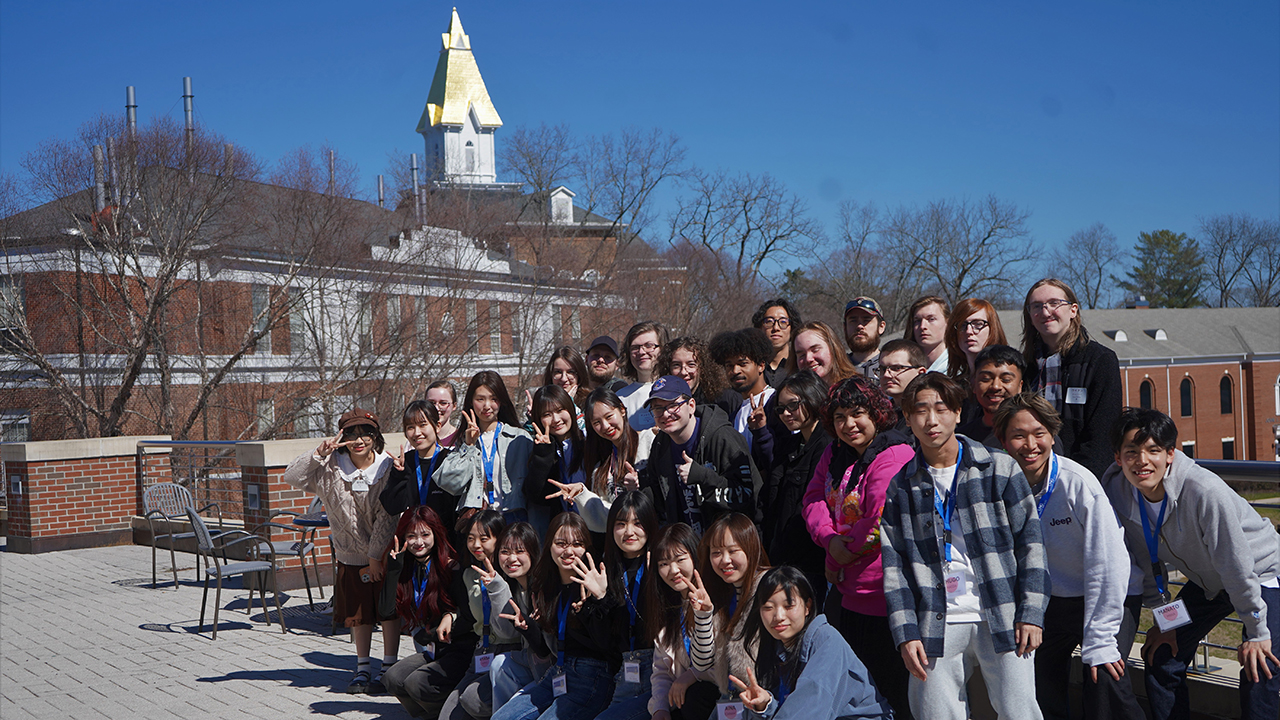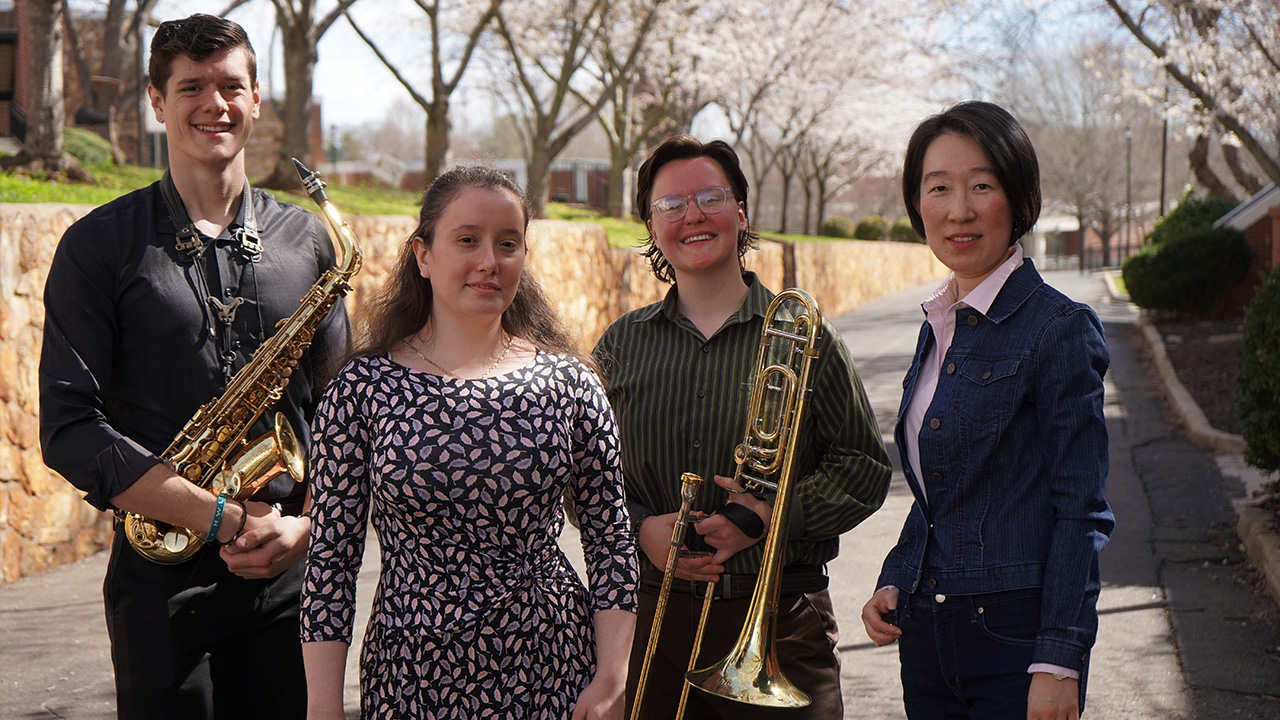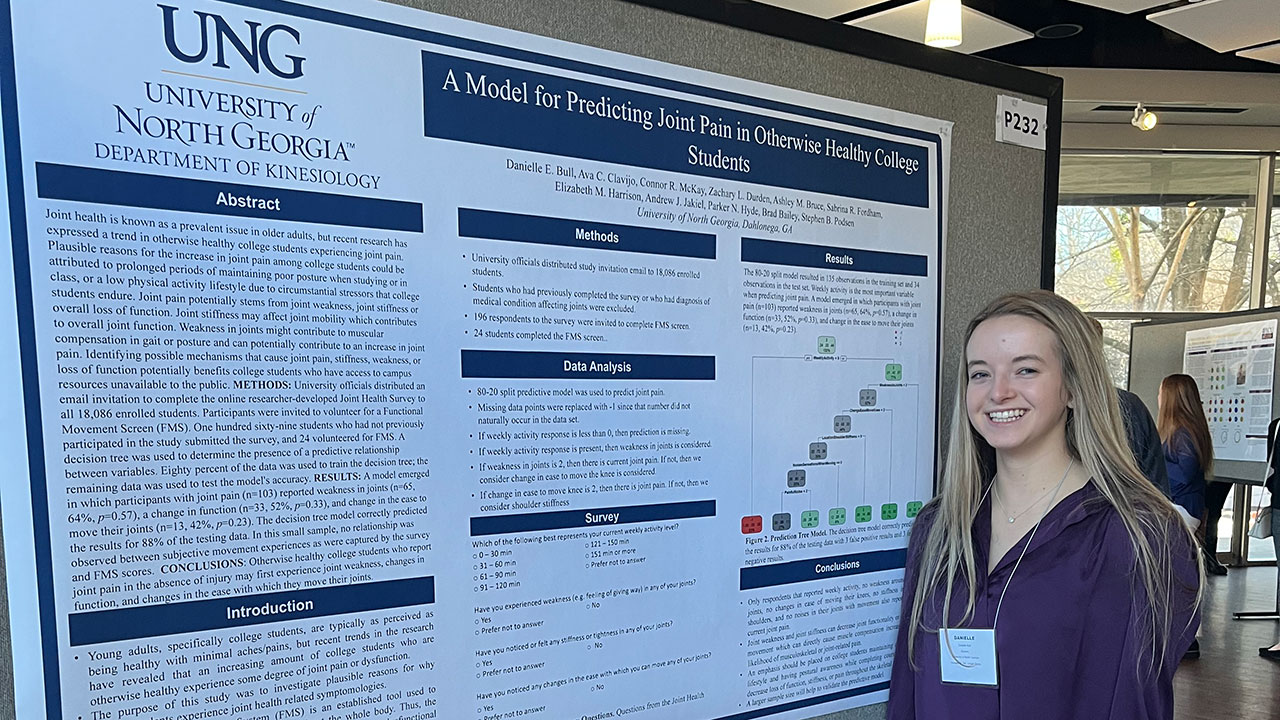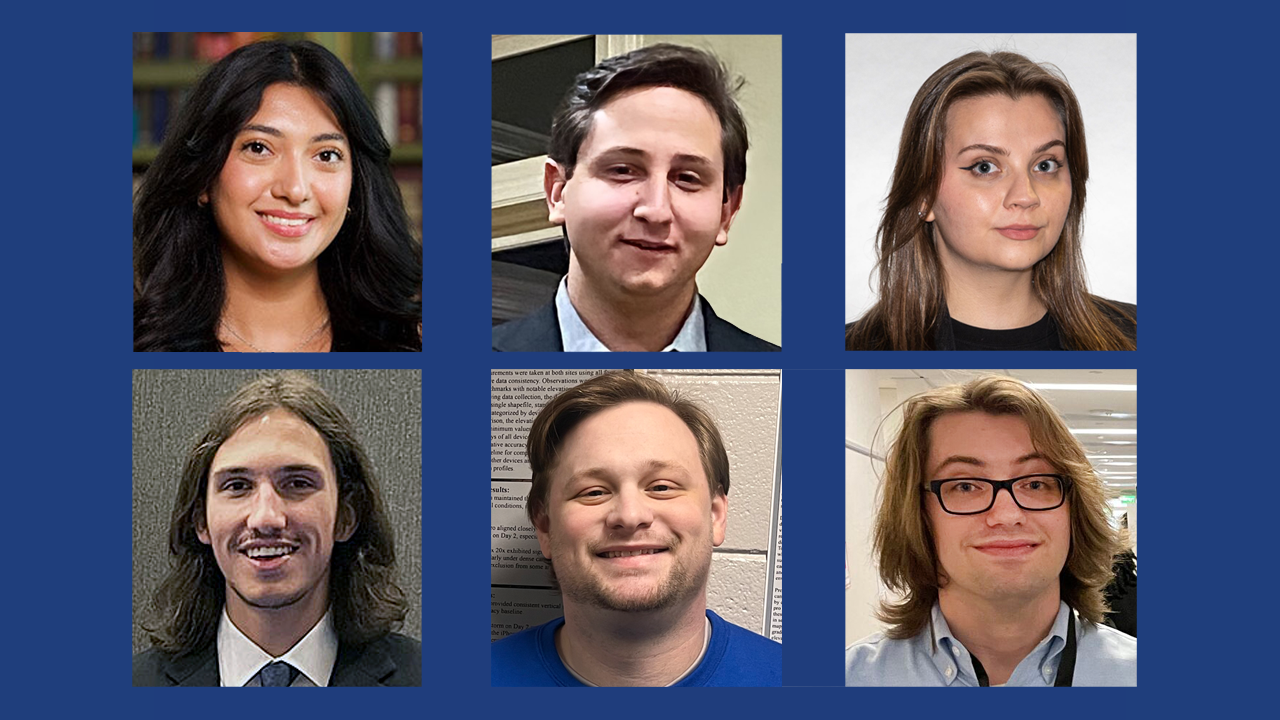Three students and assistant professor probe into eye movement

Article By: Staff
Using the University of North Georgia's (UNG) eye tracker, Dr. John Dewey and a trio of seniors pursuing psychology degrees are searching for the answer to a question: How much information can you gain from a person's gaze?
That simple question leads to more. For example, if someone is looking at one element on a computer screen for a long time, is it because the person is processing the information better or is confused? Or if a person quickly looks away, is it because the person is bored or has learned the information quickly?
Dewey and his research students — Siena Dittrich, Tassie Garrett and Mads Baek-Larsen — aim to answer a few questions by monitoring volunteer subjects' eye movements as they watch a video about Statistical Package for Social Sciences (SPSS).
Psychological science faculty use SPSS to teach students about how to use statistics. Dewey, assistant professor of psychological science at UNG, said the program is popular among faculty who teach statistics and research methods.
"It's more user friendly," he said. "Using SPSS, you can point and click and do the statistics tests."
By determining where a person's eye focused and how long it lingered over a specific portion, student researchers could reconfigure the video to improve learning.
"We could improve the presentation by simply having a laser pointer guide people's eyes to the point where they need to look to learn the information," said Baek-Larsen, a 22-year-old from Copenhagen, Denmark.
Dewey said if the hypothesis proves true, it will have several educational applications.
| Transcript |
But first, researchers must conduct their experiments to find out if the hypothesis is accurate. The experiment involves several steps. First, they determine the volunteer participant's dominant eye. Second, the eye tracker monitors and records the eye movements as the SPSS video plays. Finally, the volunteer is quizzed about the video.
"We want to correlate their eye movements with their quiz performance," Dewey said. "We want to discern if they were looking where they were supposed to, to learn the information."
To collect all of the data and analyze will take time. But Baek-Larsen said that has been the most interesting part of the project.
"Running of participants through the test can be dull, because we are watching their eyes," he said. "But this semester we have come up with new questions to ask them after the video. And we get to figure out why these questions would be appropriate and why we need to throw other questions out."
Dewey said students learn valuable lessons from each step in the process. He said they learn how to process participants, analyze data and present their findings, to name a few. All are skills necessary for graduate school.
Garrett, who has never completed an undergraduate research project, already sees how the project has increased her technology knowledge and skills.
"I am more confident in working with Excel spreadsheets," the 21-year-old from Athens, Georgia, said. "And I like working with the eye tracker because it's a piece of equipment that not everyone has access to."
For Dittrich, she got a crash course in crafting the video that the volunteers watch.
"It was nerve-racking making the videos and the teaching someone how to use the program," the 21-year-old from Peachtree City, Georgia, said. "It was really great experience, because I was fully immersed in the project."
Dewey is pleased to see his students benefiting from the undergraduate research project.



